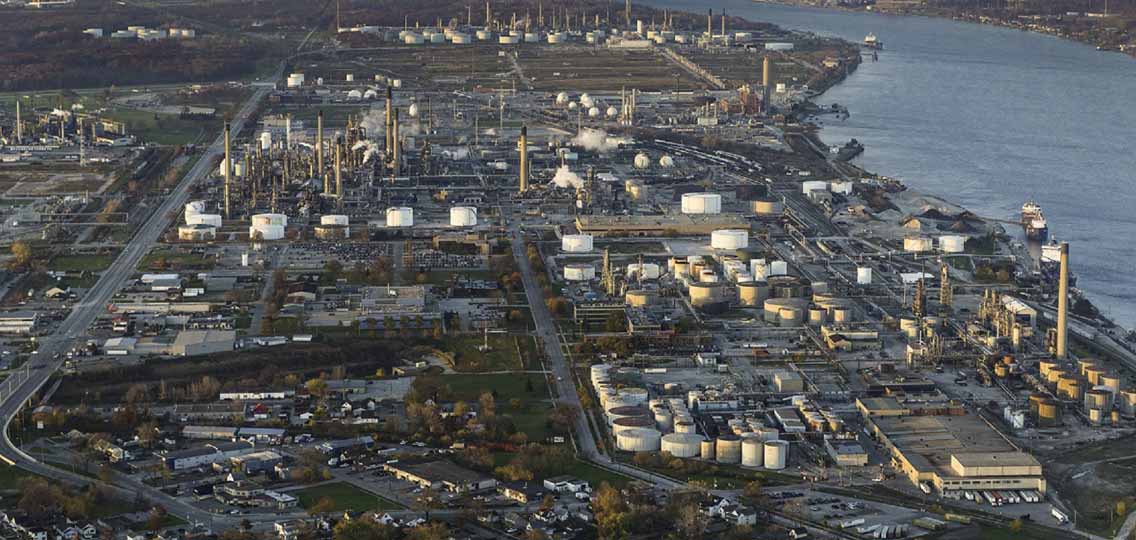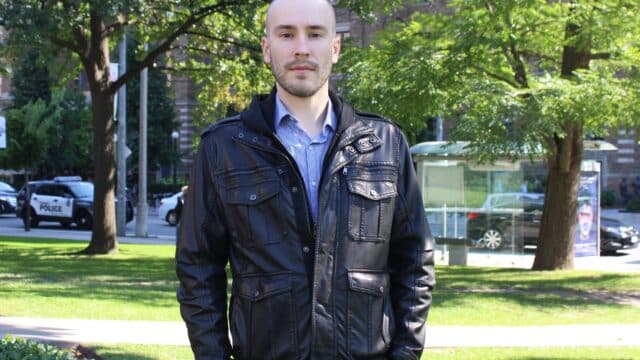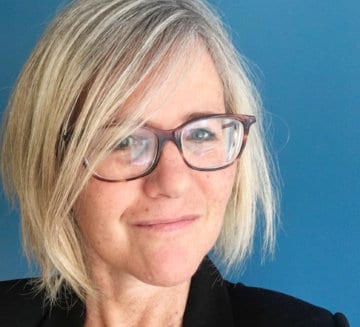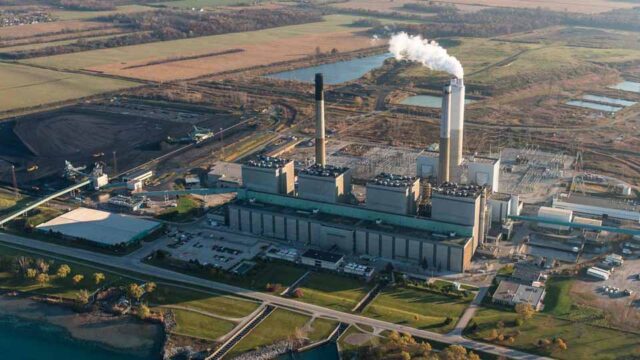UPDATE 11/24/2015: Shell has pleaded guilty to the charges and has been ordered to pay $500,000, plus another $125,000 as a victim fine surcharge. The company has also been ordered to pay $200,000 directly to Aamjiwnaang First Nation, where residents bore the brunt of the pollution from this incident and where the cumulative impacts of air pollution from facilities like Shell’s refinery undermine the community’s human health and dignity.
Charges in this case were laid after we helped our clients Ada Lockridge and Ron Plain apply to the Ministry of the Environment and Climate Change for an investigation of the spill. Ada Lockridge personally gathered evidence of the spill and its impacts on Aamjiwnaang residents and, with help from senior scientist Elaine MacDonald and Ecojustice lawyers, submitted it to the government in support of the application. Without her tireless efforts, justice in this case would not have been served.
“I hope the money can go towards an air monitor near the daycare and community centre where most of our community events take place,” says Ada. “The daycare was impacted by this spill just as they have been by other spills.”
This is a small, but important, victory in a much larger battle. Polluters should be held accountable for their actions, and the Ecojustice team will continue to work with Ada and Ron, Aamjiwnaang and other impacted communities to ensure that their right to a healthy environment is protected.
______________________________________________________________________________________________________________________
Almost two years after a Shell Canada refinery released a toxic soup of chemicals into the air around its refinery in Sarnia’s “Chemical Valley,” Ontario’s Ministry of Environment and Climate Change (MOECC) has laid a charge against the company.
This charge has been a long time coming. In the wake of the January 11, 2013 chemical spill, we helped Ada Lockridge and Ron Plain, our clients and champions for environmental justice for the Aamjiwnaang First Nation, submit a request through the Environmental Commissioner asking the MOECC to investigate several incidents, including that of January 11, 2013, under the province’s Environmental Bill of Rights (EBR). The request included detailed evidence that Ada gathered about the incidents and the impacts on community members. The MOECC said they wouldn’t initiate a separate investigation under the EBR because they were already looking into the spill.
In late December 2014, with only weeks left before the end of the two-year limitation period for laying charges under the Environmental Protection Act, we were getting worried that this pollution incident would go unpunished. We wrote a letter to the MOECC on behalf of Ada and Ron asking for an update and reminding them that their time to enforce the law was running out.
We are pleased that the MOECC has decided to pursue charges but it should not take pressure from community members like Ada and Ron for the government to take action on a matter as serious as this one.
The Aamjiwnaang First Nation is located just north of the Shell Canada refinery where the accident happened. On the day in question, staff at the local daycare noticed a strong “rotten egg” smell hours before the spill was reported. Children began to complain of red eyes and sore throats. Daycare staff cancelled plans to take the children outside and, despite it being January in Ontario, shut off the heating in the building to avoid drawing in contaminated air. Those protocols are a response to what is called a “shelter-in-place” advisory. Residents of Aamjiwnaang are all too familiar with shelter-in-place advisories, so daycare staff knew what to do even though no such warning had yet been issued.
Ada, whose efforts to document the effect of industrial activities in her community are well known, was getting calls and texts from neighbours throughout the day. Over the years, she has developed a “stink scale” that she uses when talking to people in the community about air quality. Smells are rated on a scale of one to ten. On January 11, 2013 community members’ “stink ratings” ranged from eight or nine up to twelve – in other words, off the scale.
According to the information provided to Ada the spill was reported by Shell at 1:50 pm, more than two hours after the daycare staff and other residents began taking action. A shelter-in-place advisory went out, although it did not immediately include Aamjiwnaang. The emergency sirens used to warn residents of Aamjiwnaang when accidents happen at one of the refineries or other industrial facilities in the area didn’t sound until more than an hour after the spill was reported and long after people began to notice the smell and experience physical symptoms.
Air quality testing, conducted more than five hours after the smell was detected, found elevated levels of chemicals associated with petroleum refining around the community including the known human carcinogen benzene which was at a particularly high level near the daycare. In the wake of the incident, residents reported health effects to the local health centre including headaches, nausea, shortness of breath and skin irritation. The acute effects are troubling, but even scarier for many residents are the poorly understood long-term effects of repeated exposure to dangerous chemicals over a lifetime.
Ada has been keeping track of industrial accidents in her community for more than a decade, and they are a common occurrence. Ada frequently calls the MOECC’s Spills Action Centre to request investigations of incidents such as spills and excessive flaring. Last fall, we learned that the MOECC had dropped its investigation into an April 2013 chemical leak at a Shell refinery despite Ron and Ada having submitted air sample data Ada collected showing elevated hydrogen sulphide levels in the air at the time.
After years of tireless work by people like Ada and Ron, the fundamental injustice of the failure to take systemic action to protect the people of Aamjiwnaang is beginning to be recognized by people in power. Ontario’s Environmental Commissioner, Gord Miller, covered this issue in his latest annual report. He didn’t mince words when it came to the MOECC’s poor efforts to protect people affected by Chemical Valley’s air pollution:
“Despite decades of work fighting for government accountability and for an end to new air emission approvals, the Aamjiwnaang First Nation still faces a number of unknowns about their past and present exposure to toxic airborne chemicals. They cannot even be sure that the community warning sirens are reliable or that the government will communicate openly and promptly about its environmental findings. Such a situation would be intolerable for any community, but in light of the particular historical context of this case, it is truly shameful.”
The first court appearance for Shell Canada is scheduled to be in the Ontario Court of Justice in Sarnia on February 13, and we are hopeful that the process will lead to some justice for the community and meaningful consequences for Shell Canada. But it is important to remember that what Ron and Ada’s family and neighbours experienced that day is not just an unfortunate accident. It is one example of a systemic human rights issue. It is hard for most of us to imagine what it would mean to live with emergency sirens and “shelter-in-place” advisories as a regular part of life, but for people in Ron and Ada’s community it’s a reality.
Unless Canada takes action and recognizes that environmental rights are human rights, putting an end to the ongoing threat to the health and well-being of the residents of Aamjiwnaang will continue to be an uphill battle.





